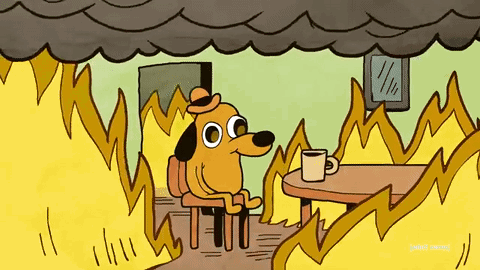BirdBox: If you're blind, you're good
November 2018

Despite receiving lukewarm reviews, Susanne Beir’s Birdbox has managed to thrill me in ways that I’ve only just been able to put into words. I have questions upon questions about the events of the movie. Why is the entity only effective outside? What is its true purpose? And what about those who CAN see?
Upon reading the synopsis, the first thing I could relate Birdbox to was John Krasinski’s A Quiet Place where Emily Blunt and her family struggle in silence to survive in a world where humans are hunted by monsters with ultra-sensitive hearing. Both have a similar concept:
“If they hear you, they hunt you”
“If you look, you die”
However, BirdBox seemed rather different in comparison and the link I had previously made seemed unfair. Beir’s approach to the post-apocalyptic world was more insightful (no pun intended) and had purpose to inform rather than scare. I praise Beir’s decision to refrain from showing a physical monster, allowing audiences to conspire about what thing has caused the “worldly cleansing”, as one of the seeing travellers tells us.
The inability to use sight due to the risk of insanity and eventual suicide instantly made me think, how would I do this? It was clearly a test for Sandra Bullock’s character, Malorie, who had to brave a horrific trip down a river and through rapids to a safe haven for her and her two children (creatively named Boy and Girl) whilst blindfolded. Bullock herself even faced difficulty, having injured herself whilst being blindfolded through 50% of filming.
The fact that we are unable to see what people see when they are exposed to the entity sparked conversation on issues in today’s world, such as mental heath and how it is an individual struggle that isn’t visible to others. In an interview with Variety, Tom Hollander who played Gary, a seeing intruder, commented on how “the feeling of being destroyed by something you can’t see chimes with the metaphorical anxiety in the world today with everything changing”. Many threads throughout twitter also recognise BirdBox’s representation of the effects of mental health on the individual, one user (@marlborolayts) highlighting how the movie shows how it “could be anyone who can be affected by depression/suicidal attempt”.
On the other hand, viewers criticized the representation of those with mental health issues. Following Bullock’s character, Malorie and her survival, she comes across Gary and other “seeing” people, who attempts to remove her blindfolds to make her see the “beauty of the world”, a lure to kill her. This sets up those with mental health issues as antagonists, depicting them as people to be fearful of, thus demonising them and stigmatising mental health disorders.
Alongside the critique of the depiction of mental health, viewers who had read the book commented on the disloyalty to the book. One user on twitter (@radandteronimus) asked if the author, Josh Malerman, agreed with Netflix’s reflection of mental health despite it never being mentioned in the book.
All in all, BirdBox stands as a strong contender to movies that have put me on edge without being a horror. The hardcore survival method and the need for immense willpower seems impossible for a weak kid like me and I can only hope and pray, that if an apocalypse such as this occurs, I am already peacefully burning in hell.


